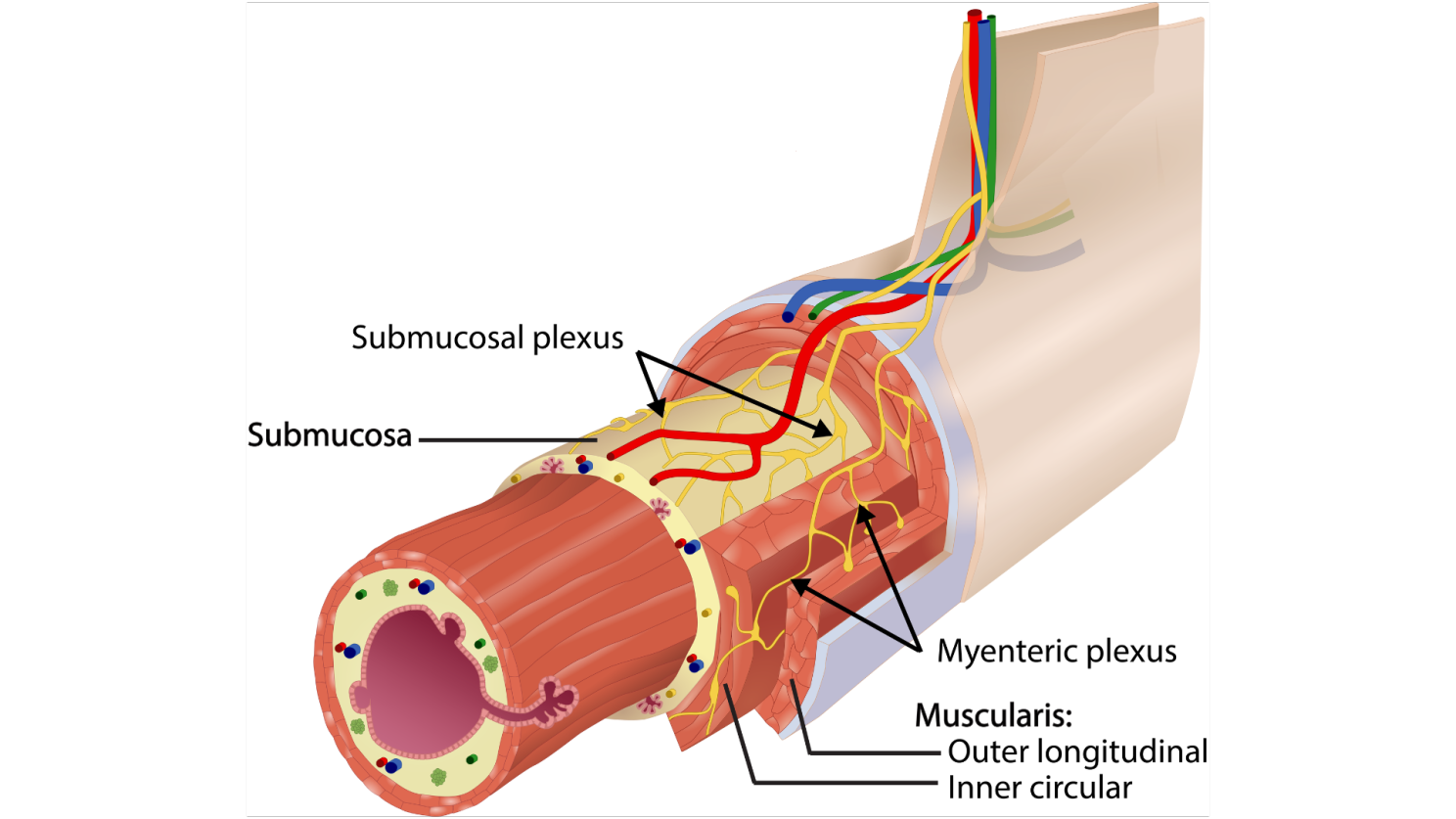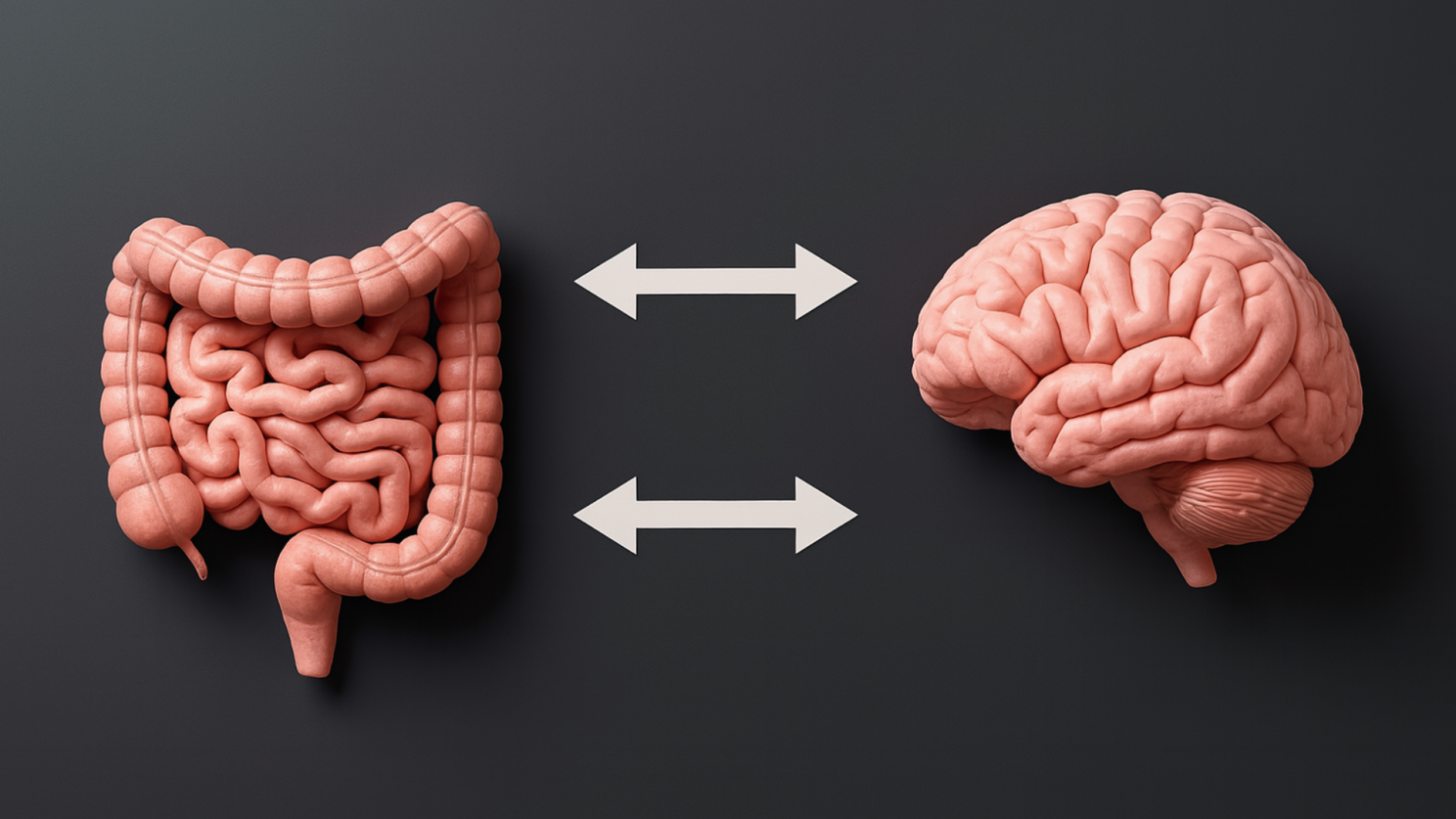Have you ever felt "butterflies" before a big presentation, or noticed your stomach churning when you're anxious? There's actually a scientific reason behind these "gut feelings" – and it's much more complex than you might have considered. Found within the walls of your digestive tract lies an intricate network of hundreds of millions of neurons (roughly 200-600M) that operates like a second brain. Interestingly, this second brain is capable of functioning independently from your main brain. This incredible system is called the enteric nervous system (ENS), and it's completely changing how we understand the powerful connection between your gut and your overall health.
The enteric nervous system is essentially your gut's dedicated nervous system. Think of it as a sophisticated control center running your digestive operations. Stretching from your esophagus all the way down to your rectum, this "second brain" contains more neurons than your spinal cord and can operate completely independently from your central nervous system.
Unlike other parts of your body that rely heavily on signals from your brain, your ENS can make decisions on its own. It coordinates digestion, controls the movement of food through your intestines, regulates blood flow to digestive organs, and even communicates with your immune system – all without needing permission from your brain.
Your enteric nervous system is organized into two main networks:
The Myenteric Plexus: This network sits between muscle layers and controls the rhythmic contractions that move food through your digestive tract. This is what makes your digestive tract muscles work together to push food along.
The Submucosal Plexus: Found closer to the intestinal lining, this network manages fluid secretion, blood flow, and communication with immune cells. This manages the day-to-day work of digestion.
These networks work together while processing information about what you've eaten, coordinating digestive enzymes, managing muscle contractions, regulating blood flow, and maintaining the delicate balance needed for optimal gut health.

Ever wondered why we say we have a "gut feeling" about something? For example, when someone says, "I'm fine," but something in your gut is telling you otherwise. Well… there's actually science behind this intuition and a large part of it has to do with your ENS. Here's what's happening... Your enteric nervous system is constantly sending information to your brain through the vagus nerve and spinal pathways. This creates a genuine physiological basis for those intuitive sensations we experience in our abdomen.
When you're stressed, anxious, or excited, your brain sends signals that can directly affect your gut function. Think about those pre-presentation stomach butterflies or how stress can instantly upset your digestion. Similarly, your gut can influence your mood and mental state.
Your enteric nervous system plays crucial roles beyond just digestion:
Digestive Coordination: It orchestrates the process of breaking down food, absorbing nutrients, eliminating waste, and regulating digestive timing with precision throughout the day. Without this coordination, you might experience bloating, irregular bowel movements, poor nutrient absorption, or feeling sluggish after meals. Your ENS ensures everything happens in the right sequence at the right time.
Immune System Communication: Your ENS works closely with gut-associated immune cells which help to distinguish between helpful bacteria and potential threats such as harmful pathogens and food toxins. This partnership is crucial because your gut is constantly exposed to foreign substances through food and drink. When this system works well, you're protected from illness while maintaining a healthy microbiome.
Mood and Mental Health: Through its connection with your main brain, the ENS influences neurotransmitter production like serotonin and dopamine, which can significantly impact your emotional well-being. Since about 90-95% of your body's serotonin is produced in your gut, a healthy ENS can contribute to better mood stability, reduced anxiety, improved emotional resilience, and enhanced stress tolerance.
Stress Response: Your Enteric System helps explain why stress so profoundly affects digestion and why digestive issues can influence your stress levels. This creates a two-way cycle where chronic stress can lead to digestive problems, which then create more stress, potentially impacting your overall quality of life and health.
While your enteric nervous system functions automatically, you can support its health through several lifestyle approaches:
Mindful Eating: Eating in a relaxed state allows your ENS to coordinate digestion more effectively. Try eating without distractions like TV or phones, chew your food slowly and thoroughly, and take a few deep breaths before meals to activate your "rest and digest" mode. Avoid eating when highly stressed, rushed, or while walking around.
Regular Movement: Physical activity supports healthy gut motility and can enhance the communication between the actual brain and your ENS. Aim for at least 30 minutes of moderate activity like walking, swimming, or cycling most days. Even gentle movement like a 10-minute walk after meals can help stimulate healthy digestion.
Stress Management: Since your ENS is sensitive to stress signals, practices like deep breathing, meditation, or yoga can positively impact gut function. Try box breathing (inhale for 4, hold for 4, exhale for 4, hold for 4) or diaphragmatic breathing (slow, deep breaths that expand your belly rather than your chest). Spend 5-10 minutes daily in meditation, or practice gentle yoga poses that massage the abdominal area.
Quality Sleep: Your ENS, like your main brain, benefits from adequate rest for optimal function and repair. Aim for 7-9 hours nightly, establish a consistent sleep schedule, try to avoid screens an hour before bed, and avoid large meals 2-3 hours before bedtime.
Scientists are only beginning to understand the full potential of the enteric nervous system. Current research is exploring how the ENS might influence conditions ranging from digestive disorders to mood conditions. This opens new possibilities for treatments that work directly with your gut's own intelligence.
As we continue to uncover the sophisticated capabilities of our ENS, one thing's for sure: the age-old wisdom of "trusting your gut" is more scientifically accurate than we ever imagined. Your enteric nervous system represents a remarkable example of your body's incredible capacity for intelligent, independent function – a reminder that sometimes the most profound insights come from listening to the wisdom found within your own body.


More Info: At WellPro, we’re building a native AI platform purpose-built to scale the next era of care: personalized, preventative, and data-driven. Our thesis is simple but bold; the future of care delivery will be patient-centered, proactive, longitudinal, and closed-loop. That demands infrastructure that can ingest multi-modal health data, generate insight, drive action, and continuously optimize based on outcomes.
We believe Agentic AI is central to making this vision real. Not just chat interfaces or “co-pilots,” but deeply embedded, goal-driven AI agents that operate within the clinical system itself, helping surface insights at the point of care, automate routine tasks, and ensure closed-loop follow-through on interventions. This isn’t an AI layer on top of legacy systems. It’s a new foundation.